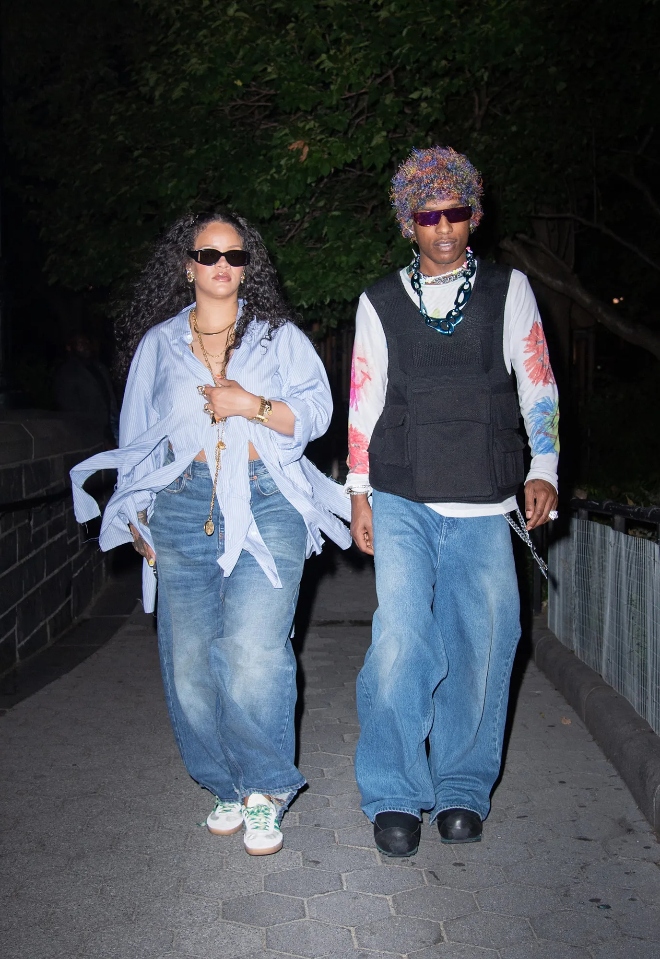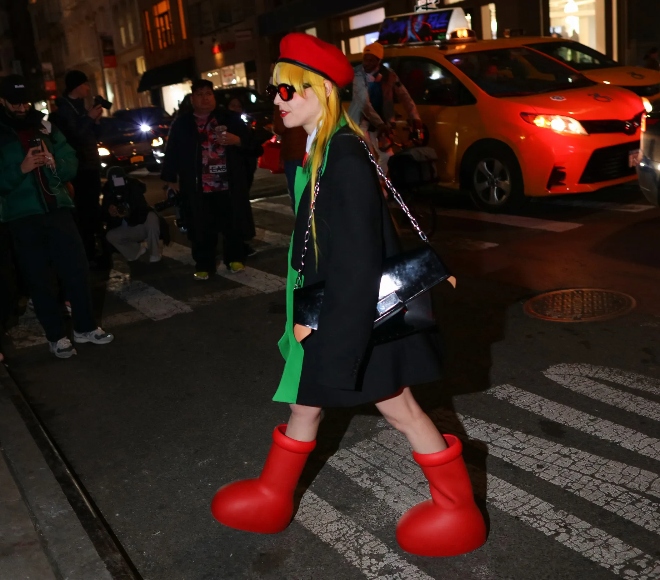Why Fashion Embraces Collaborations for Market Dominance - 5 minutes read

Bright green Crocs rainboots featured in Balenciaga’s Spring 2022 show. Photo: Balenciaga
In the ever-evolving world of fashion, collaborations have become an indispensable element. The perpetual cycle of introducing fresh creative minds, evident through the rotation of creative directors in fashion houses, exemplifies an ongoing collaboration between designers and the fashion community. This dynamic is impeccably demonstrated by Jonathan Anderson’s presence at Loewe since 2013 and the recent partnership between Louis Vuitton and the late Virgil Abloh from 2018 to 2021. While the influence of Anderson and Abloh is widely acknowledged for converging art and couture, the true essence of fashion’s affinity for collaboration demands deeper exploration.
Enhancing Market Reach: The Essential Drive

Photo: Loewe
Every passing season unfolds a plethora of collaborations between seemingly disparate entities. The term “collaboration” has transcended its linguistic boundaries, becoming a buzzword and a trending hashtag, capable of propelling social media engagement. With this surge in collaborative efforts, a question naturally arises: What motivates the fashion industry to engage in such collaborations? A noteworthy instance from 2022 is Loewe’s unprecedented partnership with Swiss running brand, On, which ventured into the world of sporting goods. The marriage of form and functionality in the luxurious Loewe-On Cloudventures was executed seamlessly, without an exorbitant price escalation. Despite the excellence displayed, skepticism lingered.
The purpose of this collaboration remained unclear. Was Loewe endeavoring to diversify into sportswear for its existing clientele, or was On striving to infiltrate the luxury domain with its own line of high-end athleisure wear? The phenomenon of “luxury trainers,” while visually appealing, failed to contribute significantly to either the world of fashion or athletic performance. Collaborations like Loewe and On’s, in essence, focus on one primary objective: expanding market reach and attracting new consumer segments. Sales are the lifeblood of the fashion realm, propelling its continuous evolution.
The Aesthetic of Contrasting Beauty

2018’s Baleciaga Crocs collaboration. Photo: Balenciaga
Despite the strategic orientation towards market expansion, the landscape of fashion collaborations thrives on innovation and unpredictability. Collaboration is akin to a crucible that fuses diverse brands and ideas, yielding unforeseen outcomes. While the Loewe-On partnership occupies the spectrum’s elegant and aesthetically pleasing side, two distinct projects stand out for their daring and unconventional nature: the marriage of fashion with the infamous Birkenstock and Crocs sandals. Balenciaga’s Demna Gvasalia, in 2018 and 2021, showcased bold renditions of the polarizing American rubber clogs, including 10cm high platforms and chunky military-inspired rain boots.
These daring creations garnered a swift and fervent following. Another example is the 2022 collaboration between Dior and Birkenstock, which reimagined Birkenstock’s “Milano” and “Tokio” models with luxury materials and intricate embroidery. While these collaborations may seem unconventional, they underline the fashion world’s ability to transform ordinary items into haute couture through innovative design.
Trading in Cultural Significance

Kim Jones’ Dior Birkenstock Tokio mules in grey, a luxury loungewear statement piece. Photo: Getty Images
The trend of elevating the polarizing into high fashion is not a novelty exclusive to luxury fashion; it has long been a staple of streetwear. Street culture redefines the unaccepted and the unpopular as forms of resistance against traditional beauty standards. This countercultural spirit imbues streetwear trends with power, leading to devoted followings. For instance, oversized denim gained prominence in the 1990s, adopted by breakdancers, hip-hop artists, and skateboarders.
These groups infused their baggy jeans with a nonchalant demeanor, contributing to a unique street art and sports aesthetic. Today, oversized denim remains a symbol of statement-making rather than conformity. Similarly, Crocs and Birkenstock, once shunned by high fashion, found acceptance in streetwear due to their rejection of conventional style for comfort. This countercultural status paved the way for their transition to luxury fashion.
Unveiling the Essence of Successful Collaboration
Is the allure of collaboration rooted in its ability to carve new territories within the fashion industry? Does it hold the potential to redefine fashion norms that would have otherwise remained unchallenged? Virgil Abloh’s words about his 2019 collaboration with Ikea reflect this perspective: “It’s about elevating the anonymous, everyday icons that we use without noticing.” Collaboration, then, becomes an interruption, a statement of unexpected innovation. However, an excess of interruptions merely creates noise, overshadowing meaningful messages. In this context, effective collaboration requires impeccable timing. Just as fashionably late entrances often garner attention, collaborations must make their presence felt at the right juncture.

Hip-hop “it” couple Rihanna and Asap Rocky seen casually sporting matching oversized denim. Photo: SplashNews

Another Birkenstocks collaboration on feet, this time with American streetwear house Stüssy. Photo: Instagram @ cakenotcrumbs

Virgil Abloh personally customising select pairs of shoes from his collaboration with Nike. Photo: nssmag.com

MSCHF’S Big Red Boots on the streets. Photo: Phil Oh
The most enduring and beloved collaborations stand the test of time. Whether through products that evolve but remain cherished or by setting new norms, collaborations can influence the industry. The Balenciaga-Crocs rain boots, a trailblazing creation, laid the groundwork for disruptive art collective MSCHF’s Big Red Boots. Some collaborations endure by adhering to craftsmanship and producing timeless goods. Just as fine wine matures with age, luxury leather gains character through softening, and genuine gold never tarnishes, successful collaborations continue to shine through the passage of time.
Comparable to adored yet divisive Birkenstocks that mold to the wearer’s feet over time, remarkable collaborations become timeless symbols of their cultural origins. These collaborations, true to their essence, become indelible imprints on the culture that birthed them.